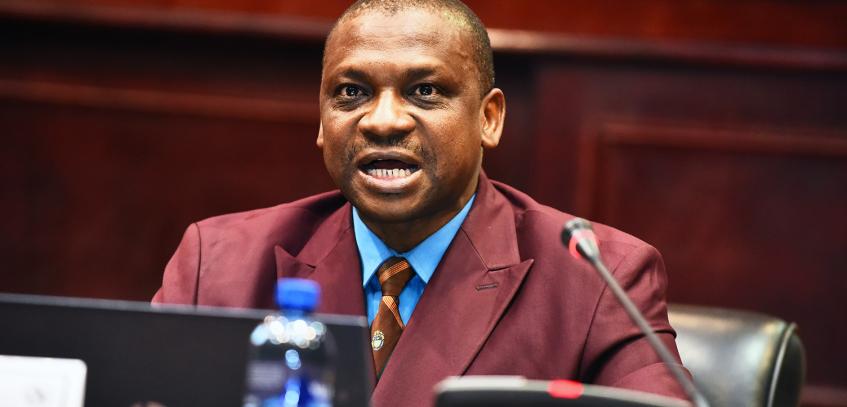Representing the African Union Commission, H.E. Prof. Mohammed Belhocine, Commissioner for Education, Science, Technology, and Innovation (ESTI), challenged parliamentarians and stakeholders to champion an educational agenda that addresses barriers to inclusivity, affordability, accessibility, and applicability for improved educational outcomes.
During a workshop marking the African Union's theme for the year, "The Year of Education: Educating an African Fit for the 21st Century," the Department presented analyses on various topics, including the Continental Education Strategy for Africa, the Sustainable Development Goals (SDGs) for 2030, the AU Agenda for 2063, and the role of parliamentarians in advancing these agendas.
Chigozie Emmanuel Okonkwo, Policy Officer in the Department, urged members of the Pan-African Parliament to advocate for education as a fundamental tool for all aspects of development. He encouraged them to allocate at least 1% of their Gross Domestic Product (GDP) to national science and technology budgets. Okonkwo emphasized the importance of parliamentarians establishing coordination mechanisms with the ESTI department to promote its programs and advocacy efforts, as well as collaborating on strategic initiatives supporting ESTI as a developmental tool.
Okonkwo also highlighted the importance of parliamentarians learning from the experiences of other continents and countries in promoting education. He suggested that MPs take legislative actions to support a dynamic and sustainable research enterprise capable of translating scientific discoveries into products, services, and processes essential for socioeconomic development.
Regarding the theme of the year, Okonkwo outlined ten strategic objectives aimed at transforming educational development in Africa and achieving the AU Agenda 2063. These objectives include reforming the teaching profession, increasing investment in Science, Technology, Engineering, and Mathematics (STEM) education, enhancing foundational learning, and expanding the teaching of African history at all levels. He stressed the importance of accelerating the implementation of strategies for Technical and Vocational Education and Training (TVET) and Higher Education, integrating digital solutions in education, and ensuring a healthy and conducive learning environment.
Okonkwo anticipated concrete and impactful actions across AU member states and the establishment of effective, long-term transformational strategies. "We expect a continental focus on building resilient education systems and addressing challenges in education financing," he added.
In conclusion, the Department emphasized the need for collective efforts to build an Africa where education forms the foundation for sustainable development and prosperity for all.
Dr. Ashebir Gayo, Second Vice President of the Pan-African Parliament Bureau, underscored the significance of the theme, emphasizing the necessity for extensive engagement. "Without education, we cannot achieve anything; development can only be realized through education. Therefore, we must ensure quality education for our children," he remarked.
He added that equipping children with education would empower them to transform their lives and contribute positively to their countries. "In this regard, all members of parliament should leverage the AU theme focused on educating and skilling Africans," concluded Hon. Gayo.








